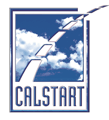Military, industry, government officials: Make Michigan national epicenter for hydrogen infrastructure, vehicles
March 6, 2019
TROY, Mich. – CALSTART and the U.S. Army Combat Capabilities Development Command (CCDC) Ground Vehicle Systems Center are working with industry leaders, innovators and elected officials to make Michigan a nationwide leader in hydrogen infrastructure and vehicle development and deployment.
Leaders from Ford, GM, Toyota, Plug Power, the Michigan Public Service Commission, Greater Lansing Clean Cities, Clean Fuels Michigan, DTE Energy, Michigan Economic Development Corporation (MEDC), and the Ohio Fuel Cell Coalition along with representatives of a number of state leaders joined CALSTART and CCDC Ground Vehicle Systems Center at a round table event to identify the benefits and challenges of catalyzing a hydrogen infrastructure revolution in the state.
“Michigan is the automotive capital of the world and in order to stay competitive in this changing market on a global scale, we must invest in the alternative fuels that drive the future of mobility,” said Michael Alaimo, Executive Director of Clean Fuels Michigan.
Participants in the Michigan Hydrogen (MI H2) Working Group recognize the economic, national security, air quality and environmental benefits of developing vehicles fueled by and infrastructure to deliver the zero-emission fuel.
“Designing, developing and adopting hydrogen vehicles and a hydrogen infrastructure means we will benefit economically, environmentally, and in the creation of new jobs,” said Pat Valente with the Ohio Fuel Cell Coalition.
“General Motors and Honda are investing $85 million into a hydrogen fuel cell manufacturing plant in Brownstown Township that is expected to create 100 jobs in 2020. We want more news like that in Michigan,” said Michael Bucci of Plug Power Inc., the leader in commercially viable hydrogen and fuel cell solutions.
Participants recognize hydrogen also presents several challenges including the cost of the fuel itself as well as the cost of infrastructure and the question remains: “Who would pay to install it.”
The group identified several potential solutions to increase viability including:
- Working with large fleets as well as developing partnerships between automotive, transit, trucking and off-road industries to grow a strong a customer base and address research and development concerns;
- Identifying additional research and development that CCDC Ground Vehicle Systems Center could contribute in this space;
- Developing policies for electricity sales to produce hydrogen with off-peak electrolysis;
- Collaborating with states like Ohio, that are also working on hydrogen infrastructure development and deployment;
- Building on the memorandum of understanding (MOU) between the Department of Energy (DOE) and MEDC to develop emerging hydrogen infrastructure technologies and grow the domestic supply chain;
- Building on existing infrastructure.
The group will share its plans and developing insights with Midwest governors beginning with Governor Gretchen Whitmer.
“Michigan is the birthplace of the American automotive assembly line and we can be the epicenter of the hydrogen fuel infrastructure and vehicle sector. Positioning ourselves to lead in the clean fuels and transportation race means positioning ourselves to benefit economically and from a national security standpoint, while also reducing pollution,” said Maureen Marshall, Midwest Regional Director of CALSTART.
CALSTART works nationally and international with businesses and government agencies to develop clean, efficient transportation solutions.
CALSTART | Changing transportation for good
A national nonprofit consortium with offices in New York, Michigan, Colorado and California, CALSTART partners with 200+ member company and agency innovators to build a prosperous, efficient and clean high-tech transportation industry. We knock out barriers to modernization and the adoption of clean vehicles. CALSTART is changing transportation for good.
